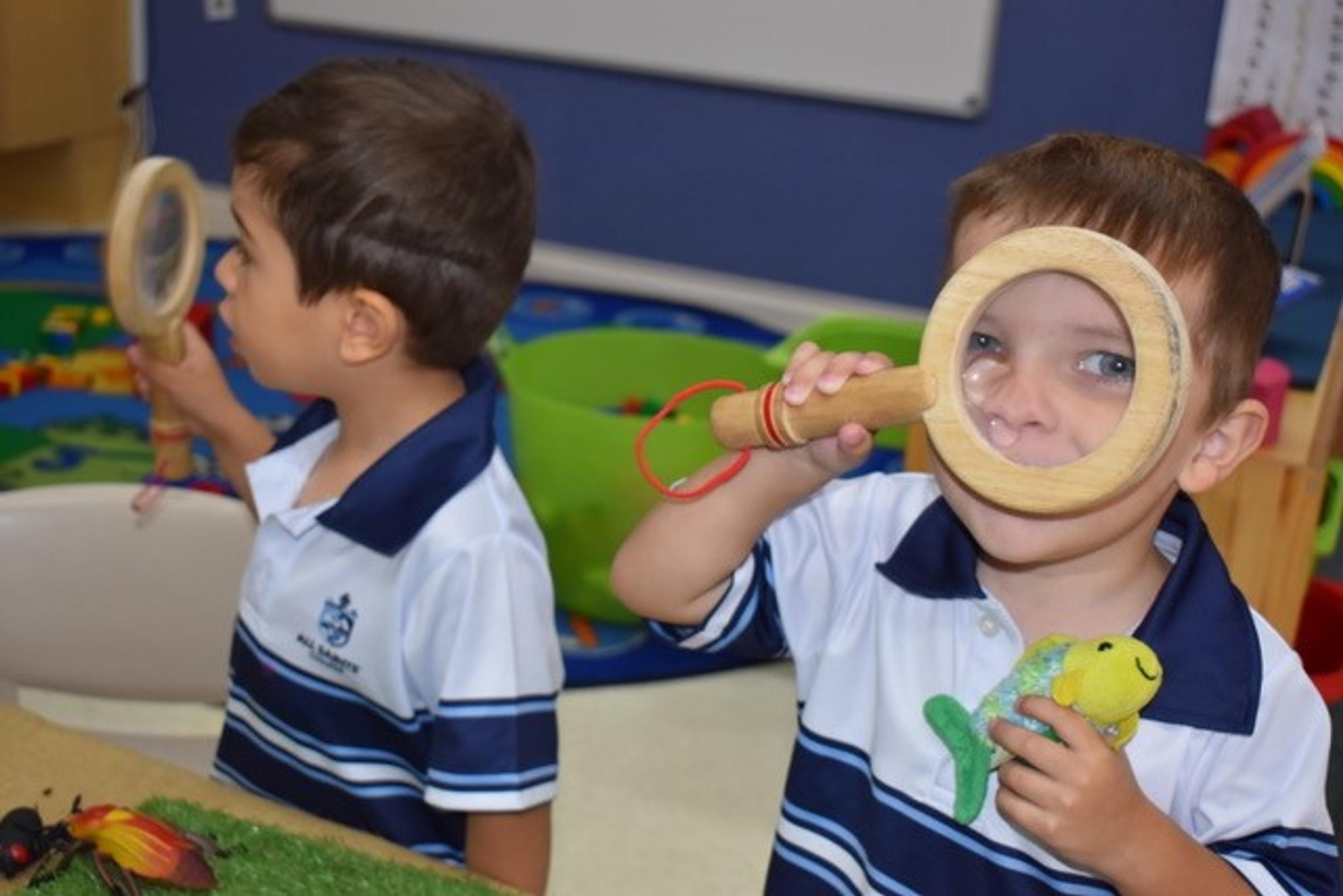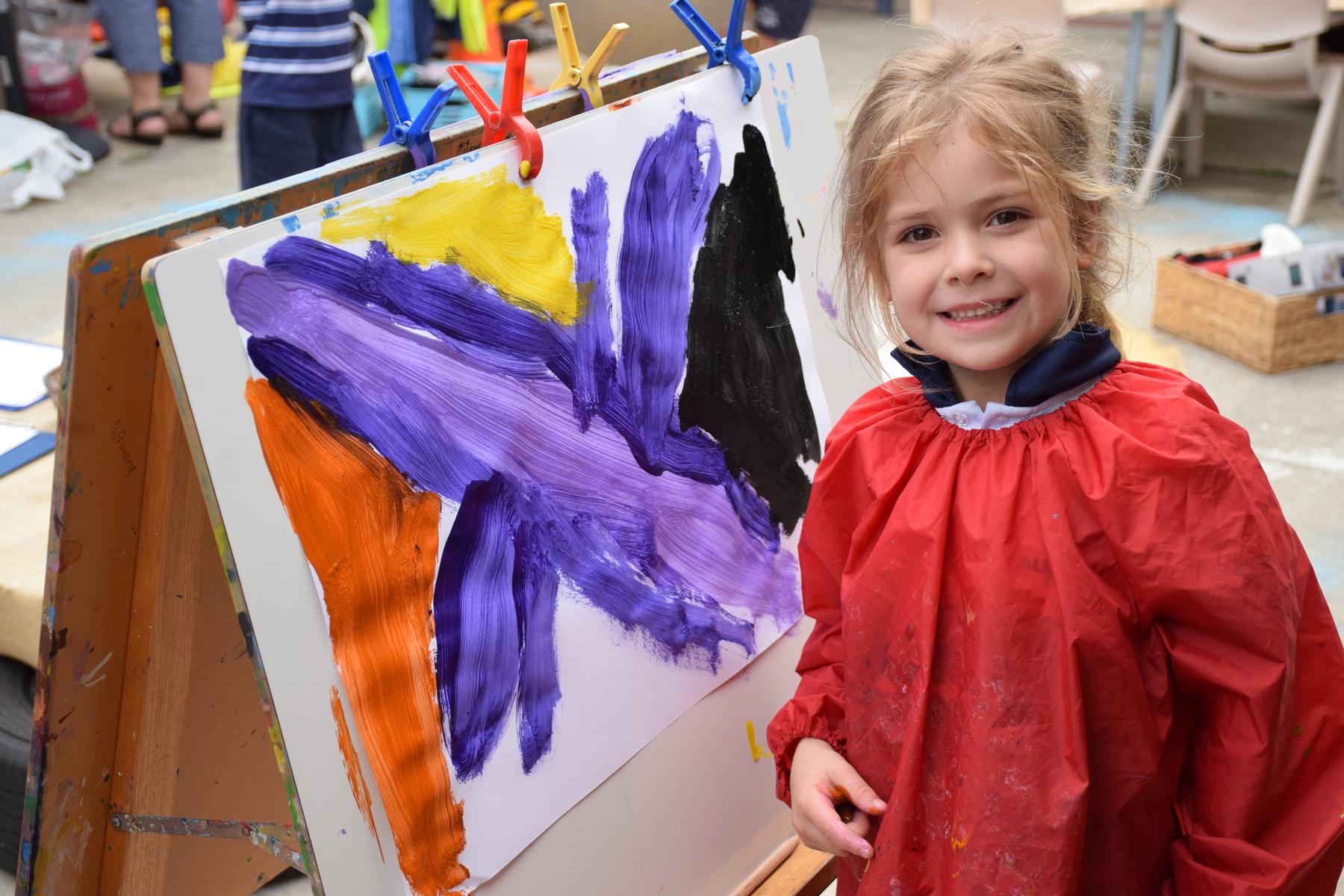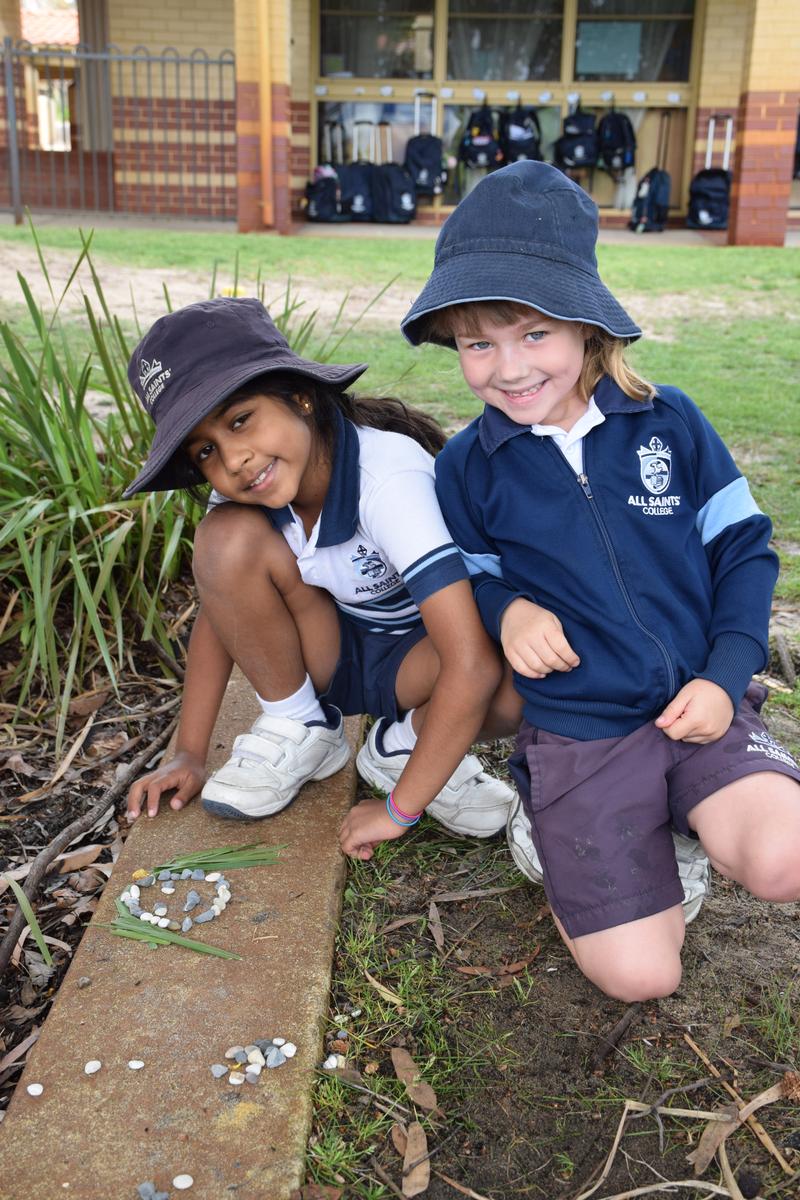Early Childhood Information

Early Childhood Philosophy
Our College values growth mindsets, and we see each child's success in being a confident and thoughtful learner as central to our thinking, planning and doing.
Learning at All Saints' College Early Childhood Centre is developmentally appropriate, active and engaging for each child.
Through play and inquiry, critical and creative thinking and endeavour, our children are nurtured, challenged and empowered.
We are intentional and explicit in our teaching.
Children are listened and responded to in ways that afford them agency, enabling them to be proactive in their learning and contribution to making a positive difference to their world. We believe the physical and social environment both at school and at home strongly contributes to each child’s unique journey of lifelong learning and wellbeing.
We strive to provide safe environments, underpinned by our College values of Empathy, Respect, Integrity and Courage (ERIC).
We encourage risk-taking, learning by making mistakes, and engagement with the natural world and our College and local community, so our children know what to do when they don't know what to do.
We value the enrichment of our College community through the diversity and contribution of our students, staff and families.
Grounded in our Christian values, we form caring, respectful relationships, thereby creating a strong sense of belonging as one.
As a community of lifelong learners, together we actively reflect on and respond to our learning and practices.
Preparing for school – Tips for a smooth transition to Pre-Kindergarten and Early Childhood classes
We have compiled some tips and ideas that we have found helpful for our younger students and their families joining All Saints' in 2019.
Anxious feelings are normal and expected during times of transition or change. This is especially true for children going back to school, or for first-timers starting Pre-Kindergarten or a new school. This transition can be stressful and disruptive for the entire family. Prior to the first day of school, your anxious child may cling, cry, have temper tantrums, complain of headaches or stomach pains, withdraw, and/or become sullen or irritable.
If after reading these suggestions you have further concerns regarding your child's transition to school, please make contact with the College to arrange a meeting with your child's teacher before the start of the new school year.
Prepare yourself first
Handing over the care and responsibility of your child to teachers can be an uncomfortable time for some families. Children take cues from their parents, so the more confidence and comfort you can model, the more your child will understand there is no reason to be afraid.
Read all the information that is sent out from the College to familiarise yourself with the routines and expectations for the first few weeks of school. As you become more comfortable with what to expect, your child will sense your feelings of excitement and enthusiasm rather than of worry and fear. If there is information you cannot find in the documentation provided, please do not hesitate to ask at the Orientation meetings or call the College to clarify.
On Orientation Day, introduce yourself to your child's teacher and familiarise yourself with the classroom routine to help support your child. When you trust the teacher, your child will also learn to trust them. The teaching staff's top priority is to look after your child and make them feel comfortable. Parents are encouraged to contact the Junior School on 9313 9334 to check on how their child has settled if you have any concerns.
Talk about Pre-Kindergarten/School with your child
This helps to familiarise them with what school is about and what to expect:
- Talk regularly about what will be happening – “Mum and Dad will take you there, leave and then pick you up, for lunch at first, then in the afternoon. You will play with other children at Pre-Kindergarten. The teachers will look after you.”
- Activities available will include painting, drawing, playdough, blocks for building, dolls, dress-ups, trains, trucks, paper, pencils, glue and collage materials, swings, a sandpit, monkey-bars, a hill to roll down, a fairy garden, musical instruments, books, puzzles, cubby-house and dancing.
- Talk about the teaching staff and how they will be there to look after your child.
- Acknowledge your child’s feelings, but tell them that they will be okay.
- Drive past the school and stop to have a look at the playground and buildings.
- Involve your child as much as possible in the buying, naming and packing of equipment and uniform ready for school, and talk with them about how to use or wear the items.
- Keep a record on the calendar of how many days to go!
- If either you or your child have any concerns or queries please contact the College for clarification.
- Find out about their school day by asking specific questions:
- "Tell me two good things about your day."
- "What song did you sing?"
- "What did you make today?"
- "What was the story about?"
Boundaries and Expectations
Pre-Kindergarten and all College classes have clear routines, boundaries and expectations that support the children in their learning and wellbeing. Boundaries, both environmental and behavioural, provide a safe and secure setting for children. Children feel safe when they know what to expect and there are clear, consistent messages. Limits and expectations consistently delivered by adults enable a child to predict what to expect and how to respond appropriately. Children’s behaviour is supported when the limits and boundaries are firm, fair, developmentally appropriate and clearly stated.
By establishing boundaries at home, you are encouraging your child to behave in ways that meet your values. It helps them to develop their own self-discipline as they mature and enables them to respond to the College’s expectations.
Children develop resilience as they learn to adapt to different settings, having been given clear guidelines on how to behave by those they trust.
Routines are a good way of developing boundaries and setting expectations, and they help children to predict what will happen next and reduce anxiety about the unknown.
Set Up and Practice Routines
Your child will adapt more easily to the ebb and flow of the Pre-Kindergarten or school day if you set up and put in place some of the following routines at home in the weeks prior to starting at the College:
- Put away their own toys/plates, etc when they have finished using them.
- Pack their bag with them so they know where items are.
- Sit at a table to eat food independently.
- Eat the foods that you will pack for them to eat at school.
- Open their own lunchboxes, containers and drink bottles.
- Have a rest/quiet time after they have eaten their lunch, so they learn to lie quietly listening to music or reading a book to themselves.
- Go to the toilet independently – wiping their own bottom and dressing and undressing themselves.
- Find their own belongings, especially their hat and shoes.
- Practise getting dressed independently.
- Take off and put on their own shoes and socks independently (staff will assist with shoelaces).
- Recognise their own name.
- Practise ‘getting ready in the morning’ routines to ease the busyness of the day.
- Develop bedtime routines at home, as lack of sleep affects children’s wellbeing. They may need to go to bed earli


